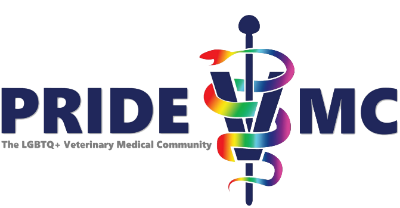Right to Correct Information
Right to Correct Information
Author: Ewan Wolff, PhD, DVM, DACVIM
Review: Mia Cary, DVM
From the GIBOR: “It should be the responsibility of the veterinary profession and the employer/institution to alter signage, marketing, websites, contacts, and all other relevant documents and materials with expediency to reflect an individual’s identity at the point at which the individual dictates it. Any announcement concerning names, pronouns, or any other personal details should be informed and led by the individual’s preferences.”
Importance
For gender diverse individuals name changes are very common. Last names may be changed for safety reasons to protect individuals from harassment and physical harm. First names are changed frequently for gender affirmation purposes and to reduce continual misgendering and microaggressions. For transgender men and women, name changes may help to push names more toward a gender binary that aligns with their gender identity. For non-binary, gender non-conforming and other gender expansive identities, name changes may help to align names outside of a binary. The reasons behind such changes are personal and irrelevant to the subject of correct information. Veterinary technicians/nurses, veterinary assistants, para staff, and veterinarians have a right not only to their names but to have their correct information listed wherever it is legally feasible. Without a formal legal name change, this should be possible on all paperwork that is not a prescription or controlled substance script depending on state law. In most states veterinary and vet technician licenses have to be present and freely accessible to observation. If there is no formal name change yet, then this can be present in an unobtrusive location.
Historic Precedent
Regardless of legal name change, it is common for veterinary professionals to use their pre-married name as the name on business cards, websites and introductions to clients. There is also precedence for people using their middle name rather than their first name, or using a nickname as their name with clients on paperwork. Additionally, it is common practice to not post images of staff on websites without their consent.
Legal Precedents
Gender identity can already be selected on US passports for gender diverse people by self identification. In 2023, 28 countries supported self-identification to the UN. As of 2022, 22 US states allowed self identification on driver’s licenses, and 17 allowed it on birth certificates.
According to the National Center for Transgender Equality’s interpretation of Bostok v. Clayton County 2020, a gender diverse employee cannot be ‘arbitrarily outed’. If an employee’s incorrect information is used when identifying them to coworkers and clients, this would ultimately out those individuals as gender diverse.
Substantial precedent already exists to support those with legal name and gender marker changes for all information used in the profession.
Potential Impacts of Harm
Use of incorrect information perpetuates deadnaming, misgendering and microaggressions all of which have a direct impact on mental health.
Use of incorrect information is a clear red flag for members of the LGBTQ+ community of discrimination both inside and outside the profession.
Use of incorrect information is a direct threat to mental health and wellbeing.
Use of incorrect information is likely to worsen the veterinary workforce shortage because we will not retain gender diverse individuals.
Individual Action
Significant effort should be taken in any Human Resources role to limit the use of prior incorrect information in any setting where it is not absolutely legally required. There should be no external facing information that includes an incorrect name. For internal facing information, logins, employment paperwork that does not require a legal name, payslips, etc whenever possible should have the individuals correct information. If someone notices the incorrect placement of deadnames or prior gender markers, pronouns, etc for a gender diverse individual, then they should take steps to correct this discrepancy.
Steps to Implementation
For non-prescribers and prescribers: Names, pronouns and gender markers should be corrected on all websites, paperwork, business cards and marketing. This should be a process that is easily changed if any of these details change in the future.
For prescribers: Prescriptions must be called in under a legal name, which is also the requirement for license holders. However, state laws allow for other doctors in the practice to prescribe for patients that their colleagues have seen or in a supervisory role. This could allow for prescribers to have a reprieve in a multi doctor practice from scripts with a deadname going to clients.
Consequences of Violation
Those who willfully display incorrect information frustrating the ability of individuals to share correct information expose themselves to legal liability for discrimination on a federal level and at a state level in multiple states. For organizations and institutions with a non-discrimination policy additional consequences for violation may apply. Beyond legal and policy consequences, conversation and education around gender diverse individual rights is recommended.
Additional Resources
- National Center for Transgender Equality – Know your rights- https://transequality.org/know-your-rights/employment-general
- The Rights of Employees Who Are Transgender or Gender Non-Conforming- https://calcivilrights.ca.gov/wp-content/uploads/sites/32/2022/11/The-Rights-of-Employees-who-are-Transgender-or-Gender-Nonconforming-Fact-Sheet_ENG.pdf
- Rosenblum Law; Navigating Name Changes- https://rosenblumlaw.com/transgender-name-change/
Contact Us
We want to hear from you. Please contact us with any questions, suggestions or inquiries.
©2023 PrideVMC | 584 Castro Street, #492 | San Francisco, CA 94114, USA
